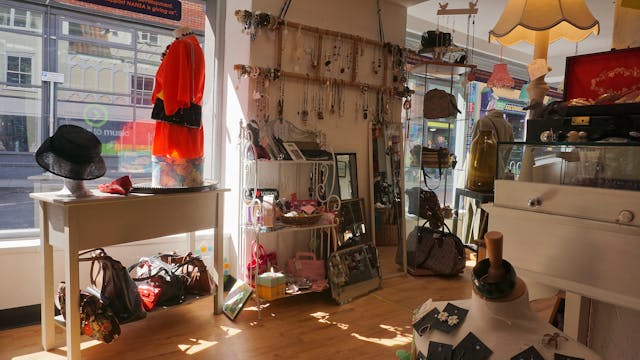Pawning in some form has been around as long as temporary loans have existed. Some say the practice as we know it dates back to Greek and Roman times or even further back to Buddhist monasteries. Others only discover this handy service when they find a local pawn shop and take a peek inside.
It is impossible to say precisely when the basics of pawning – leaving a valuable with a broker as collateral for a loan – officially began. Wherever trading and lending took place, pawning was likely right behind. But if you’re thinking of pawning a belonging of your own or on the hunt for interesting and unique products, learning a little about the industry’s past and present might help you feel more comfortable using this popular neighborhood service.
There Is a Long History of Pawning Around the World
The National Pawnbrokers Association (NPA) describes a popular legend about the practice’s origins, or at least the image most often associated with it: “The pawn symbol, which is three spheres suspended from a bar, traces back to the Medici family – a prominent family in Florence, Italy in the 15th century, known for loaning and banking. The Medici family crest features the symbol of the three balls because a member of the Medici family was supposedly working for Emperor Charles the Great and killed a giant with three bags of rocks. The Medici’s were so well known as a finance family that other lenders and people in the finance business adopted similar coats of arms featuring the three golden balls.”
And that is just the history of a symbol still in use today. Suffice it to say, there are countless tales about pawning in the past that connect it to everything from brokered land holdings to charitable “interest-free or low-interest loans.”
More Recent Pawning Practices in the U.S.
Fast forward a few hundred years and the general purpose of pawning hasn’t changed much. The practice has existed in the U.S. since the early days of Southwestern trading posts. Today, Fullerton Pawners in Chicago is one of roughly 11,000 pawn shops operating in the U.S. One tradition that continues from the olden days: the typical pawnbroker is still a small neighborhood business. Contrary to common misconceptions, the industry is regulated by many laws and statutes, and the businesses benefit people who need a small amount of money to cover immediate expenses ranging from auto repairs to medical care.
NPA notes a few other key pieces of information about the industry:
- Pawning regulations in this country date back to 1892.
- A 2017 Consumer Financial Protection Bureau (CFPB) report stated “pawns do not harm consumers, are not confusing, and do not put consumers in a cycle of debt.”
- “States individually license and supervise pawnbrokers, strictly governing loan terms including duration, fees and interest.”
Fullerton Pawners on Chicago’s North Side Is Trusted to Provide Small Loans
It’s good to know that after so many iterations, pawnbrokers are expected to comply with numerous regulations aimed in large part at protecting consumers. But, as with any industry, not all shops are as reliable as they could be, which is why it is so important to work with a well-established known entity in your community.
Nowadays at Fullerton Pawners, we are widely trusted to do so much more than handle loans. That is certainly a crucial part of our enterprise, but we also provide many other helpful services:
- Make Cash Purchases
- Evaluate Products
- Repair Valuable Merchandise
- Sell Diamonds, Jewelry, and Many Other Valuable Items
Contact Fullerton online, call us at 773-637-9999 for more information, or stop by to check us out in person!

